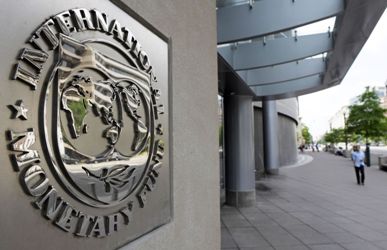IMF & World Bank call on Sudan to maintain reforms, secure debt relief
October 20, 2013 (KHARTOUM) – The International Monetary Fund (IMF) and the World Bank (WB) urged the Sudanese government to continue down the path of economic reforms and press with its outreach to creditors in its quest for debt relief.

The TWG saw the participation of officials from Sudan, South Sudan and African Union (AU) mediator Thabo Mbeki who is assisting with Khartoum and Juba’s efforts on debt cancellation as one of the outstanding issues following Sudan’s partition in July 2011.
Khartoum inherited the entire external debt that existed prior to the secession of the south. The two countries have yet to agree on how to split up the debt.
Both sides decided to reach out to creditors to obtain debt relief and if that fails will sit down to see how it can be divided using the “zero option”.
As it stands now, the IMF projects that Sudan’s external debt as percentage of GDP will increase this year to 87.6% from 82.2% in 2012
Around three quarters of Sudan’s $40 billion plus external debt are owed to the Paris Club of creditor nations and other non-member states. The remaining balance is equally divided between commercial banks as well as international and regional financial bodies.
According to an IMF press release last week, the TWG participants were encouraged by the progress in implementing September 2012 cooperation agreements between the two neighbors which covered oil, citizenship rights, security issues, banking, border trade among others.
“They welcomed progress made by Sudan, including the recent implementation of difficult reform measures that could form the basis of a successor SMP, and the adoption of an I-PRSP. They also called on Sudan to maintain the reform momentum, continue the technical work, including the establishment of a track record of policy reforms with the IMF and stepped up outreach efforts towards creditors. They also underscored the importance of handling the “zero option” in a flexible way”, the press release reads in part.
They also commended the formation of the Tripartite Committee between the AU, Khartoum and Juba on dent relief “as a platform to strengthen relations between the two countries and coordinate outreach efforts towards creditors”.
Bella Bird, World Bank Country Director for Sudan and South Sudan said that “providing the necessary debt relief to reduce Sudan’s external debt burden to a sustainable level is critical to supporting economic development in both Sudan and South Sudan”.
The IMF’s Mission Chief for Sudan Edward Gemayel noted that the East African nation “has a long track record of implementing sustainable economic policies”, adding “that a successor SMP [Staff Monitored Program] supporting an appropriate policy framework would help Sudan establish a sound track record of performance in the period through the Decision Point that would one crucial element in gaining creditors support for the debt relief process”.
Last April, Gemayel said that it will be near impossible for Sudan to secure debt relief even if it satisfied technical and economic requirements.
“I’m not saying this is impossible but it is difficult because it is linked to political issues which requires a public relations effort with member countries” IMF deputy director of the Middle East and Central Asia department Edward Gemayel said during a visit to Khartoum.
He pointed out that any debt relief deal with Sudan would require the unanimous consent of all 55 countries in Paris Club which he suggested would be improbable.
(ST)
